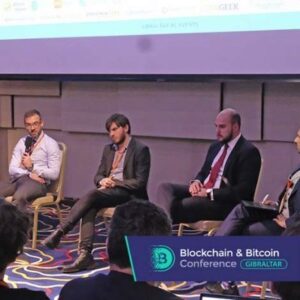Merge will change Ethereum’s proof-of-work status to proof of stake. It combines the network’s execution layers and consensus layers. While this combination won’t lower transaction fees and improve scalability it will make the network more efficient. However, other upgrades may.
The Merge — Ethereum’s transition from proof of work into proof of stake — is imminent, but it will not resolve the network’s scaling challenges.
This month’s pivot is Ethereum’s largest change. Ethereum will be further removed from Bitcoin’s original design and into a new era in blockchain technology when it is completed. This will also align with many other newer blockchains.
Although The Merge is a significant change, it will not affect Ethereum’s core performance. Common misconceptions surround The Merge as a way to increase speed or reduce fees. However, neither of these are true. The Merge’s consensus mechanism and tokenomics are responsible for the larger changes. Let’s take a look at the Merge’s capabilities and limitations.
What Ethereum’s merge is offering?
Merge will change Ethereum’s proof-of-work status to one that is proof of stake. This transaction is due to the merging of two layers. The term “merge” refers to the combination of the current execution layer, which uses proof of work, with a new consensus layer called Beacon Chain.
The Ethereum blockchain will then cease to function as usual, but it will run on proof of stake instead.
The Merge will bring about a few changes to Ethereum. One of these changes will affect the security model for the network. Ethereum won’t be protected by miners who can solve complex computations and are able to run powerful computers. Proof of stake will make it impossible for them to access the network. To secure the network, participants will instead stake ether tokens (ETH) with validators. Security for the chain will now be provided by the economic value of the staked ETH tokens.
After The Merge, transactions on Ethereum will be ordered by validators and not miners. Once The Merge occurs, these entities will determine the order in which slots are ordered (the new term used for blocks).
Ethereum’s carbon footprint will decrease with miners gone. The validation team won’t have to use powerful computers that consume lots of energy. So Ethereum’s energy consumption will drop by more than 99 %.
The Merge will also impact Ethereum’s issuances of new ETH. The Merge will result in a reduction of around 90% in the issuances of new ETH. In every transaction , the network will continue to use tokens. It could also burn more tokens each year if network fees are too high, resulting in a deflationary system.
How scalability is still an issue
Because it is not part of the upgrade, the Merge will not affect scalability. The Merge will not increase the Ethereum blockchain’s capacity. It will not affect the speed or cost of transactions on Ethereum’s base layer. It only changes the consensus protocol that governs network.
Blockchain networks have struggled to solve the problem of scaling. This is because of something called the “blockchain paradox” or “blockchain trilemma”. There are three sides to the paradox: security, scaling, and decentralization. The simple argument is that it is impossible to optimize for all three sides of this trilemma simultaneously. Optimizing for one side or the other will result in optimizing for the other.
Blockchains older than Bitcoin, Litecoin and Ethereum work by having the majority of participants running full nodes. Full nodes store all data history and verify transactions on the network. These full nodes are highly secure and decentralized, but they aren’t always scalable. Bitcoin can only process five transactions every second. Ethereum can process between 13 and 20 transactions per second.










